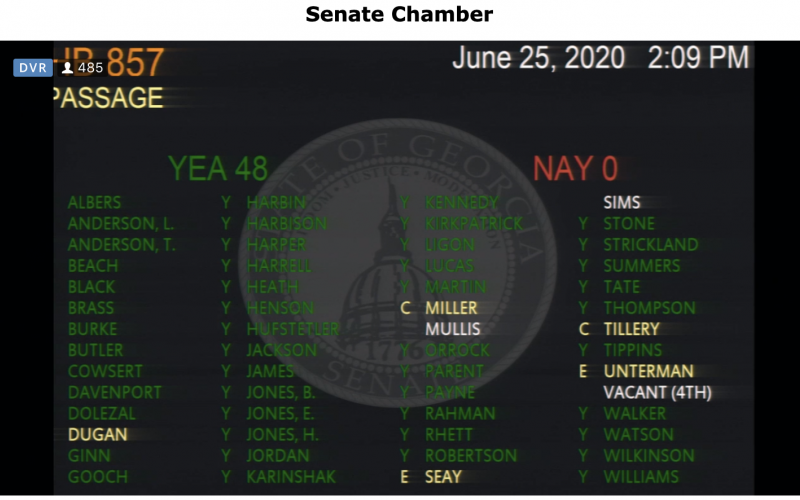A bill to ban the burning of railroad crossties by energy plants in Franklin and Madison counties passed the Georgia State Senate unanimously Thursday afternoon. The bill, which was passed unanimously as well by the Georgia House of Representatives in March, will now go to Gov. Brian Kemp to be signed into law.
ATLANTA – A bill to ban the burning of railroad crossties by energy plants in Franklin and Madison counties passed the Georgia State Senate unanimously Thursday afternoon.
The bill, which was passed unanimously as well by the Georgia House of Representatives in March, will now go to Gov. Brian Kemp to be signed into law.
The bill, House Bill 857, bans the burning of railroad ties treated with creosote or naphthenate, which are cancer-causing chemicals.
The bill was originally filed by State Rep. Alan Powell (R-Hartwell), along with Reps. Tom McCall (R-Elberton) and Rep. Rick Jasperse (R-Jasper), in response to the burning of creosote-treated railroad ties at Georgia Renewable Power (GRP) plants near Carnesville and Comer in Madison County.
The two plants, which went online earlier this year, burn waste wood, “clean” construction debris and railroad ties to generate electricity.
Noise, dust and pollution from the plants has drawn continued complaints from neighbors of both plants.
Two citizens’ groups – the Franklin County Fallout Group and the Madison Clean Power Coalition – have focused on pollution from the burning of creosote and the health problems it may cause.
Before final passage in the Senate Thursday, State Sen. John Wilkinson explained the need for the bill to his colleagues and urged its passage.
“We feel for the safety of the constituents in those counties, we need this bill,” Wilkinson said.
State Sen. Frank Ginn, whose district includes Madison County, gave the Senate a history of the plants. Ginn worked with the plants as both Franklin County manager and Franklin County economic developer. He now works as economic developer for Madison County.
Ginn said he looked at the plants as an economic boost to the communities, but after the Obama Administration changed federal rules to classify railroad ties as a renewable energy source, it caused issues.
“When they changed the federal regulations, the plant looked at it as an opportunity,” he said.
When the plants are starting up or shutting down, Ginn said, emissions cause burning eyes, sinus problems and irritated throats.
“People in the community can’t stand it,” he said.
Ginn urged the Senate to send a message by passing the bill unanimously.
The bill passed the Senate by a 48-0 vote.

